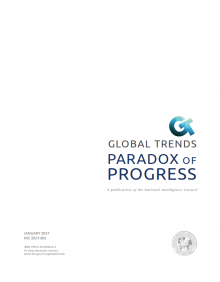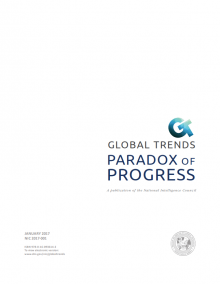Communities
Posted in Blog,National SecurityJuly 19, 2018Comments Off on Communities

Last month I teed up the distant horizon point of view of “Global Trends: Paradox of Progress,” and talked about how our world will look if the “Islands,” or “Orbits” scenarios play out in the future.
There is one more scenario that could shape our future world. This one is a bit more radical than its two cousins, but it is thought-provoking and deserves our attention.
This scenario explores the issues that arise as the enormity of future economic and governance challenges test the capacity of national governments to cope, creating space for local governments and private actors and thus questioning assumptions about the future of governance. This scenario emphasizes the trends associated with the changing nature of power and advances in information and communications technologies that are enabling a broader array of influential actors and identifies how such trends might lead to choices that create both opportunities and hurdles for future governance. The story of this scenario is told from the perspective of a future mayor of a large Canadian city in 2035, reflecting on the changes she has witnessed during the previous two decades:
As we can see from this brief description of the three scenarios, the paths each one takes us down are dramatically different. Global Trends emphasizes that there is nothing in any of these scenarios that is preordained. Rather, choices governmental leaders make today will largely determine which scenario plays out decades hence.
Want more now? You can read Global Trends: Paradox of Progress here










